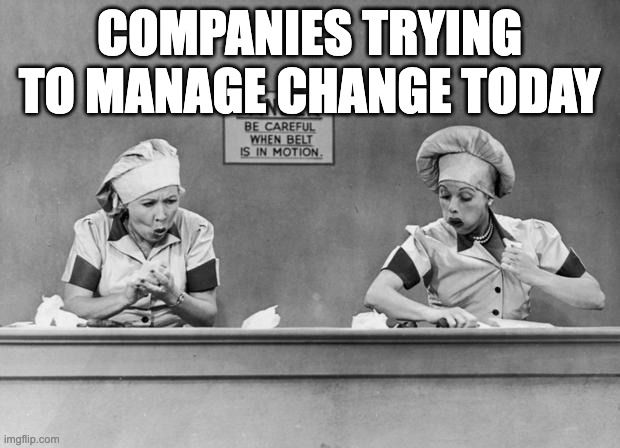Has the Future of Work Jumped the Shark?
- Rob Caldera
- Mar 27, 2019
- 3 min read

Has the Future of Work “jumped the shark”? The phrase, if you’re not familiar, refers to when something that’s popular and generally considered to be of good quality (like an excellent TV show) reaches a point when it begins to slide into mediocrity. Often, in the case of scripted TV shows, it happens when absurd plots are introduced that stray from the original formula for success.
People sometimes point to a specific moment (like an episode) when they believe it “jumped the shark.” The term was derived from an episode of the classic television show Happy Days when the character Fonzi attempted a water ski jump over a shark infested area. Spoiler alert: he made it.
The global conversation about the Future of Work may be strapping on those water skis as you read this, if not already mid-air above the sharks.
The buzz about the Future of Work is everywhere. You can’t escape it. From my recollection (based on following it closely), it’s been going strong for roughly five years but really picked up steam in the past two. (Coincidentally, it was in Season 5 when the shark jump occurred.)
The phrase now seems to encompass anything future-related that’s focused on business and jobs – from the coming impact of A.I., to the gig economy and much more. While there’s no specific “jump the shark” moment I can point to, my reason for posing this question is that the conversation today (in my opinion) has become diluted, directionless, and even bordering on fear mongering.
When the topic first rose to prominence it was a hopeful conversation. The focus was mostly on how we can build our organizations of the future to be more human, more adaptive, with emergent properties. It was about how we could break the shackles of the industrial revolution and its dehumanizing ways of working.
Those conversations are still happening but they’ve seemed to take a back seat. Instead, the majority of the discussion is now around A.I. and how we can prepare for the seemingly inevitable coming of our robot overlords. And while that’s an extremely important discussion, we shouldn’t lose sight of the fact that no one really knows how soon that predicted future will happen, if it happens at all. The future is up to us to create, and that includes the extent to which A.I. pervades the workplace, as well as how (e.g. enhance not replace jobs).
We only know one certainty – change is happening faster than ever. Disruption is turning our previously trusted business paradigms on their head and our organizations simply cannot cope. Various forces of disruption are applying immense pressure on today’s companies and the cracks have been growing bigger and bigger.
This is why I feel we need to get back to the original Future of Work conversation about what we want our organizations to be. We may not know what the future of work holds, but we do know that organizations will need to adapt to even more changes than they currently face. Yet, most are not built to do so.
How we can enable our organizations to adapt to whatever the future of work throws at them?
Adaptation is something that humans do very well, not machines. There are many new and unique ideas out there about what the business of the future should be – how it should be run, what its organizational structure should look like, and what work in these companies would be like.
In a previous series of blog posts, I spoke about a framework that combines many of these existing ideas in a way that can help organizations adapt to today’s increasing demands. Most of these approaches are still at the edges, happening in small experiments or within very non-traditional organizations. But that’s how change starts.
These transformational ideas are slowly changing the very nature of business and work. When eventually (and inevitably) they move from the edges to the center, they will birth a new organizational concept, fit for purpose for the complex 21st century.
Thriving in an accelerated age is not easy. But continuing to do what we’ve always done is a recipe for failure. Let’s bring the Future of Work conversation back to how we can make our organizations more adaptable AND more human in the process.
In what direction would you like to see the Future of Work conversation head?






Comments